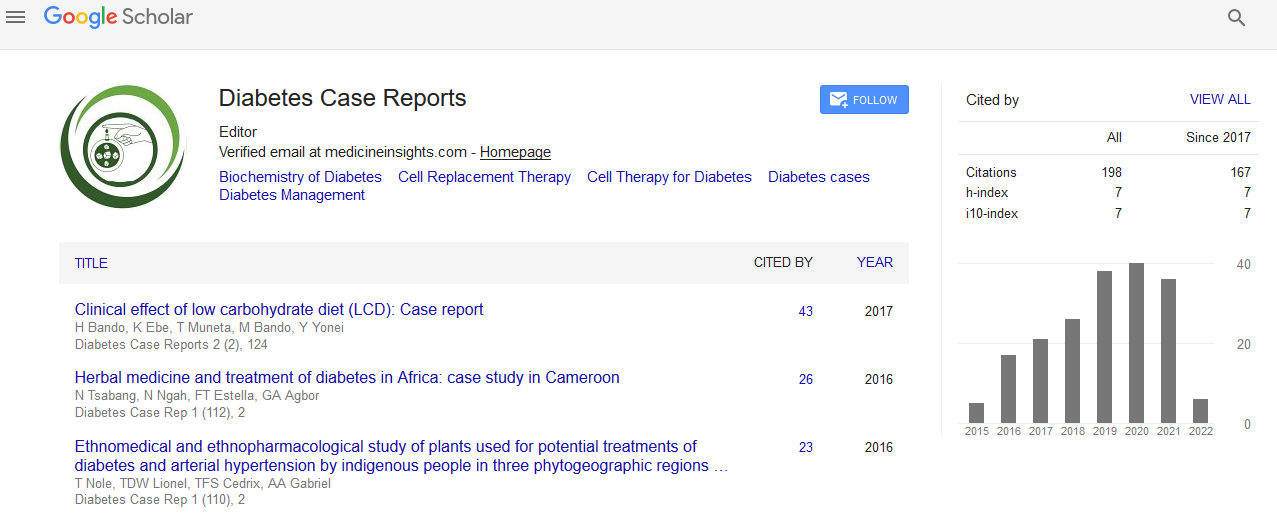Indexed In
- RefSeek
- Hamdard University
- EBSCO A-Z
- Euro Pub
- Google Scholar
Useful Links
Share This Page
Journal Flyer

Open Access Journals
- Agri and Aquaculture
- Biochemistry
- Bioinformatics & Systems Biology
- Business & Management
- Chemistry
- Clinical Sciences
- Engineering
- Food & Nutrition
- General Science
- Genetics & Molecular Biology
- Immunology & Microbiology
- Medical Sciences
- Neuroscience & Psychology
- Nursing & Health Care
- Pharmaceutical Sciences
Abstract
Development of GLP-1 releasing agents
Marco Falasca and Silvano Paternoster
Diabetes is currently one of the major health problems worldwide and it is growing at a very fast rate, mainly because of its strong link with obesity. Diabetes is associated with several complications, including micro and macrovascular complications that are mainly caused by poorly controlled blood glucose levels and that ultimately result in reduced life expectancy. There is currently a huge interest in identifying new therapeutic strategies to prevent the development and the progression of the disease and to guarantee a better control of blood glucose levels. Incretins, especially glucagon-like peptide-1 (GLP-1), stimulate insulin secretion in a glucose-dependent manner. The incretin effect is thought to account for at least 50% of postprandial insulin secretion in healthy human subjects, but it is markedly reduced in patients with Type 2 diabetes due, at least in part, to a deficiency in meal-induced GLP-1 release. Pharmacological GLP-1 analogues have been approved for the treatment of Type 2 diabetes. Based on our recent results, in this study, we investigated the hypothesis that the phospholipid lysophosphatidylinositol (LPI) can regulate blood glucose levels through stimulation of GLP-1 release. Our overall goal is to determine whether LPI and/or LPI analogues can act as blood glucose lowering agents and whether strategies aimed at potentiating the release of endogenous GLP-1 through this novel LPI-dependent mechanism can be beneficial in blood glucose management. This strategy would represent an advantage compared to current available therapies since it would aim at enhancing the release of endogenous GLP-1 rather than relying on the use of mimics.

